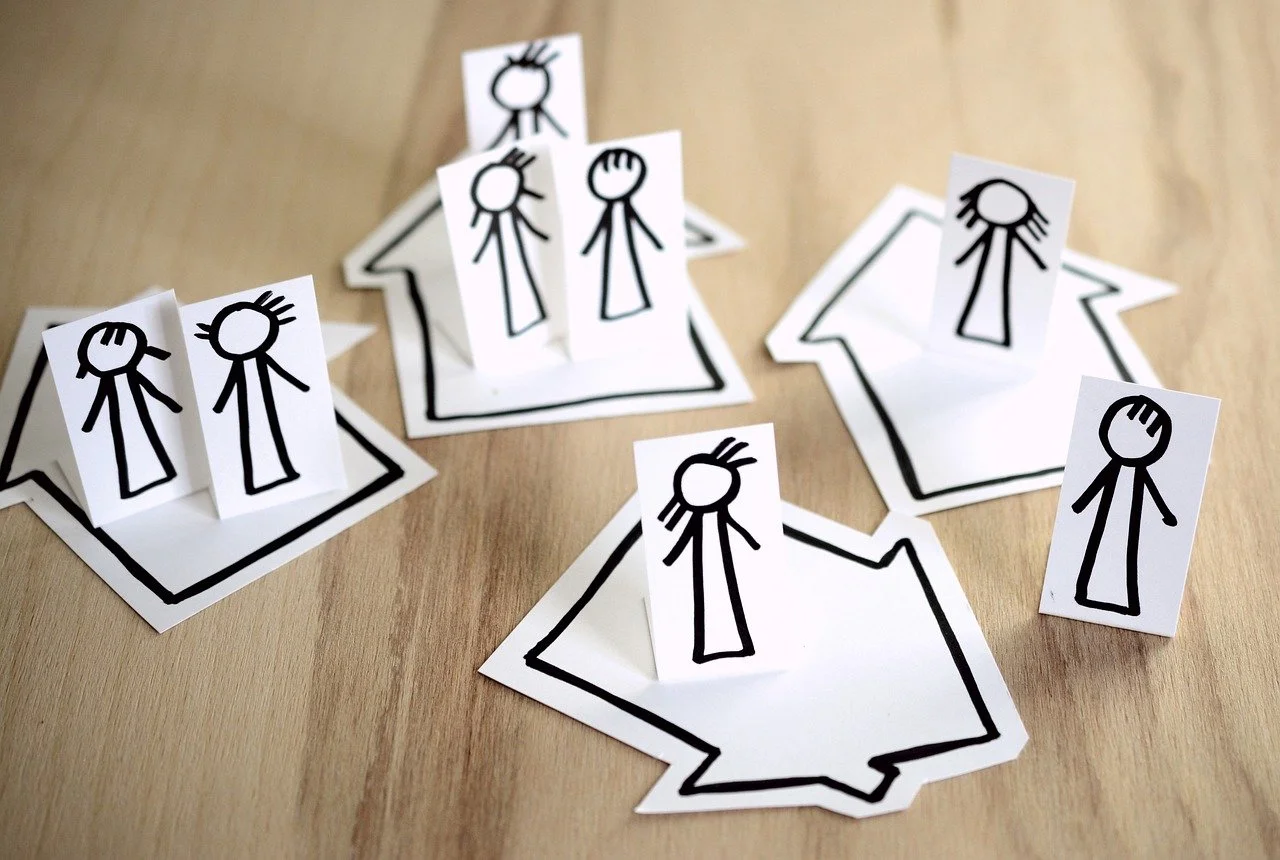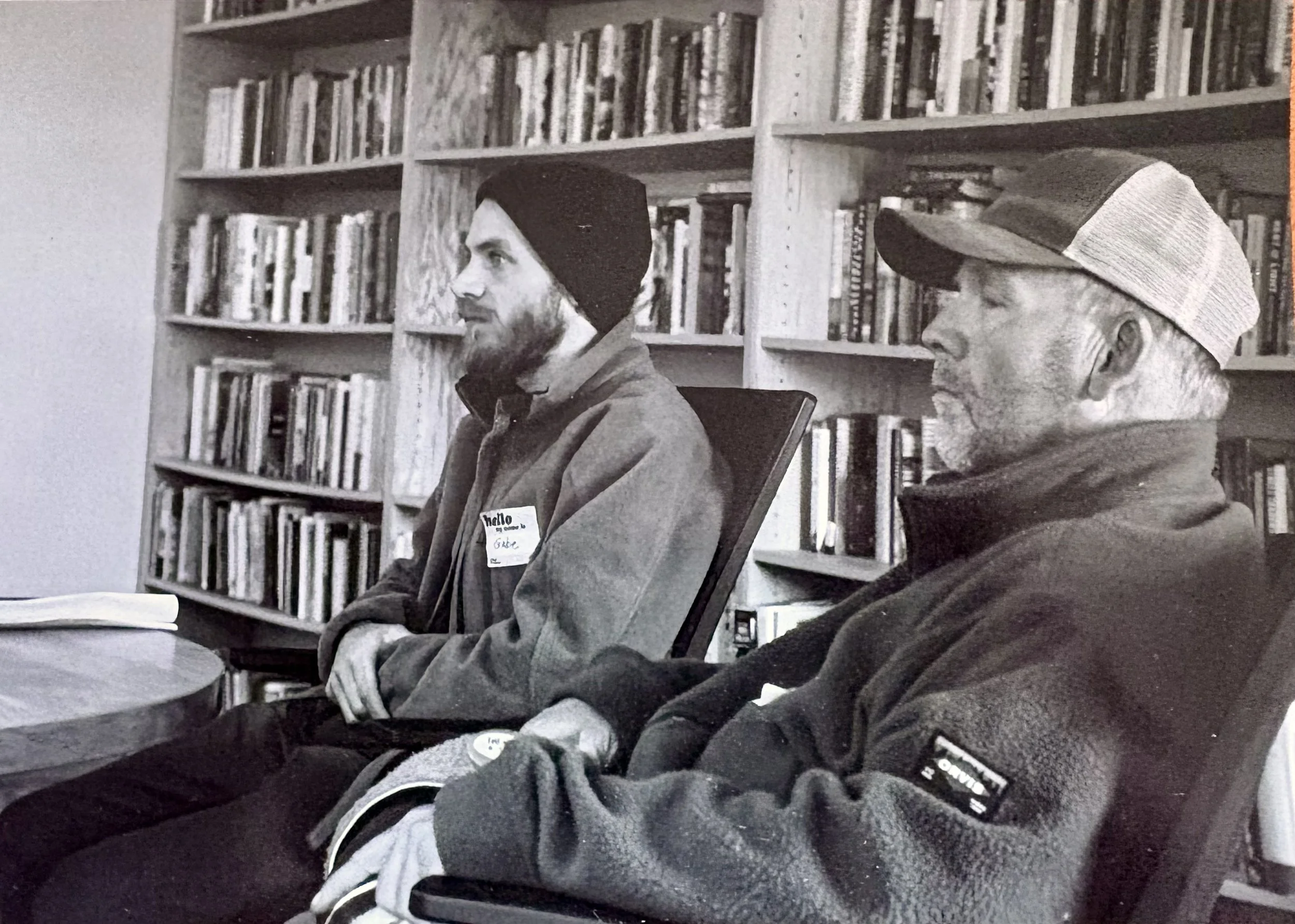
On the issue of individual and collective community safety …
A small group of 16 individuals organically came together due in part to the growing relationships forged at our first event back in November. At this second event on January 15, 2025, eight un-housed and eight housed friends came together to discuss the issue of individual and collective community safety.
At the beginning of the event each person shared something that brought them joy.
The bolded names are individuals who are currently un-housed.
Beth - meditation
Kirby – people
Gabriel – my children
Jaimi – outdoors when it is warm
Zander – being alive
Claire – service
Nesti – gathering people together
Jason – art
John - music
Curtis – service
James – my daughter
Mike – this moment
David – smiles in this room
Chris – stillness
Carol – possibilities
Kenny – affection & acceptance
One of the people that gathered with us on that day was Mike Butler, the retired police chief of Longmont, Colorado, and his partner Carol Engel- Enright.
Mike shared the following thoughts — “What strikes me as I listen to everyone is that we either have to be self-reliant and become self-sufficient or someone will do it for us. When I was the Chief of Police in Longmont one of the things we did was separated away from the criminal justice system and attach ourselves to the heart of our community. I see people as having unlimited and infinite capacity which allows me to see their possibilities. Utilizing that thinking in working with people in our community we set about to create alternatives to the criminal system. The guiding principle for our police was if we can use something different what does that look like? Social capital, skills, care, kindness, gifts, talents that went unused were awakened. People want to be part of things that are working and thriving. This conversation excites me because you are in a sense talking about bringing the philosophy we used in Longmont to Boulder. When you see people through the lens of their gifts, not their deficiencies, not through fear. If you see people that way, you see them as sacred. In that role, what are the opportunities? The order of thinking has to change in the community. When we talk about social capital it sounds easy, but it takes action. You have a whole neighborhood around here, your task is to try to figure out how to work with the neighborhood and police to bring about safety. One of the things we put in place in Longmont was the concept of restorative justice, in fact from what I understand, Longmont uses restorative justice practices more than any other city in America. We thrived because we made it our focus.
Jaimi spoke next — “I was working as a security officer for the main library and they just let me go because they found out I was homeless. They found out because someone close to me, Zander who is here, got stabbed. Me and a couple of people came to his aid, it’s sad but I was in a job and saved someone’s life and it cost me my job. Like I said, until that incident they didn’t know I was homeless. The minute the community finds out that we are homeless, it is another check against us. I was trying to be of service, wrong place, wrong time, wrong circumstance.”
Kirby interjected — “It is not just a homeless issue. We need to figure out how to use our skills, gifts, and talents. People want us to succeed, sometimes you just need to sit down and get to know the person. It really takes being willing to put out a chair and get to know someone.
Mike — “Part of what you might want to consider. We were able to recruit dozens of employers who would offer jobs if people were part of an effort for self-improvement. If you are looking for work we made sure that those possibilities exist for you to get a job. For those who were working with addiction, Longmont had agreements with treatment centers to help people with chemical substance addiction. People, citizens, helped navigate for people in the community. We began to gather the private and non profit sector and created allies. I suggest you invite two or three people from those sectors and bring them together like this, they will follow through and they can make things happen. If you know people, start leveraging what they can do. You are a phenomenal group. There are people here who want to make a difference and there are people in this congregation that want this to succeed. You have a unique opportunity to create a new model.
Chris — “I am meeting such amazing people. Such a gift. What attracted me to this church, I was searching for denominations and when I came here I thought, wait a second, they are not just talking, they are working on the solution. Allowing the homeless to be here, making sure all are welcome! I really admired what you are doing and continuing to try to do in this church. I survived the streets of NYC for four years. I had so much trauma from that time. I want to re-engage and be of help
Curtis — “I was homeless for five years in Indianapolis, had to address getting clean. At the time, didn’t consider myself an addict. Had to address it – in a workshop – I learned that addressing your trauma plays a big part in the healing process. I like what Mike said, ‘the police were in connection, they had an option.’ At the workshop people made sure that if someone has a treatment possibility, they had a bed.
Claire — “I like the idea of bringing together the people who have heart. It doesn’t matter where they come from. Some people are afraid of the police and of the homeless because of the bad seeds. What if we can bring together the ‘good seeds’ so they can be nourished, the seeds that need help. I love the idea of bringing the unhoused together to the church. People can be respectful and kind, and beautiful to see how much the environment impacts the people, the culture.
David — “I appreciate the sharing. I consider myself blessed to have had a brief experience of homeless life. I found myself unemployed, evicted, with no money, living out of my car. That wasn’t supposed to happen to me. I carry that with me, an appreciation for how quickly things can change. Without doing anything, I am now so interested in bringing my perspective to the community. You may not realize, but I understand what being in that community is about.
Paddy — “Thanks for having me. Sometimes I feel a little inadequate, just addiction and alcoholism. I worked with the fire department for 30 years on the ambulance on Colfax. The folks I worked with had good hearts, with overdose or gold paint around their mouth, the good ones of us realized it could be us at any time.
A series of question were posed.
How do we bring together two communities who have been separated?
How do we keep the doors of our church open to all?
How do we see each other and how do we get seen?
We ended the time together with the following question that Gabriel posed to Mike.
“Would you be interested in mediating with the Chief of Police in Boulder and the city council with us, Mike?”


